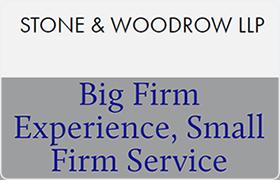Unionville Trusts Lawyer, Virginia
Sponsored Law Firm
-
 x
x

Click For More Info:
-
Stone & Woodrow LLP
250 W Main Street Suite 201 Charlottesville, VA 22902» view mapAccident & Injury Law Big Firm Experience, Small Firm Service
We consider a wide variety of personal injury cases, but we are selective in the ones that we accept. We believe that a small caseload translates into quality representation.
800-836-7131
Robert Bruce Easterling
✓ VERIFIEDBankruptcy & Debt, Bankruptcy, Estate, Trusts, Wills & Probate
Robert B. Easterling, Attorney at Law, in Fredericksburg, Virginia, offers legal services, specializing in bankruptcy, wills, trusts and estate planni... (more)
Guy F. White
✓ VERIFIEDCriminal, Real Estate, Wills & Probate, Trusts
With over 25 years of experience in law, Attorney White has a broad range of expertise. Handling of criminal, DUI and traffic offenses with extens... (more)
Catherine Hailey Vaughan Robertson
Real Estate, Litigation, Trusts, Family Law
Status: In Good Standing
Douglas K. Baumgardner
Residential Real Estate, Litigation, Trusts, Administrative Law
Status: In Good Standing
Michael Timothy Brown
Residential Real Estate, Litigation, Trusts, Administrative Law
Status: In Good Standing
 Will Woodrow Charlottesville, VA
Will Woodrow Charlottesville, VA Practice AreasExpertise
Practice AreasExpertise


